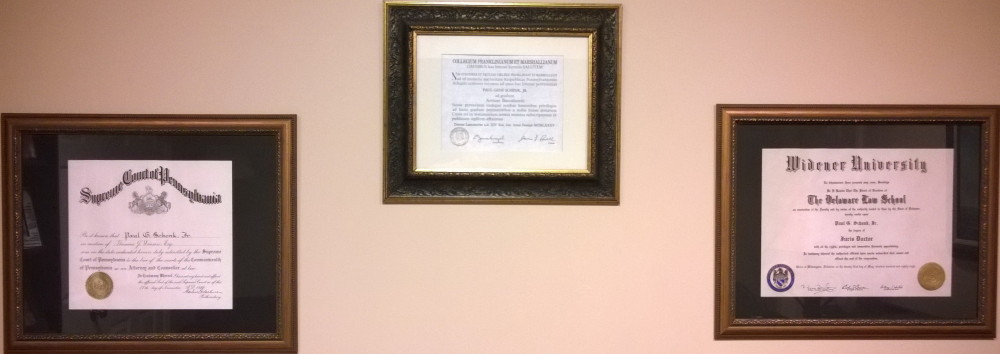THE FOLLOWING STUDY ARTICLE IS INTENDED TO SUPPORT AWARENESS . IT IS NOT LEGAL ADVICE. IF THE READER SEEKS LEGAL ADVICE CONCERNING HIS OR HER PARTICULAR SITUATION, HE OR SHE SHOULD SEEK OUT AN ATTORNEY IN A LAWYER CLIENT RELATIONSHIP.
—————————————————————————————-
In Pennsylvania, a lawyer’s common representation of several clients will almost certainly be inadequate if one client asks the lawyer not to disclose to the other client information relevant to the common representation.
Among other relevant considerations outside the scope of this article, a lawyer’s common representation of several clients has a concurrent conflict of interest if there is a significant risk that the representation of one or more clients will be materially limited by the lawyer’s responsibilities to another client . See Pennsylvania Rules Of Professional Conduct 1.7. (a)(2). However, even if such a concurrent conflict exists, a lawyer may represent such clients as long as that lawyer reasonably believes that the lawyer will be able to provide competent and diligent representation to each affected client and each client gives informed consent. See Pennsylvania Rules Of Professional Conduct 1.7. (b)(1)(4)
Although a lawyer asked to represent several individuals is likely to be materially limited in the lawyer’s ability to recommend or advocate all possible positions that each might take because of the lawyer’s duty of loyalty to the others, common representation is permissible where the clients are generally aligned in interest even though there is some difference in interest among them. See Pennsylvania Rules Of Professional Conduct 1.7. Comment (8) & (28). Thus, in arranging a property distribution in settlement of an estate, for example, a lawyer may seek to establish or adjust a relationship between clients on an amicable and mutually advantageous basis, seeking to resolve potentially adverse interests by developing the parties’ mutual interests. See Pennsylvania Rules Of Professional Conduct 1.7. Comment (8) & (28)
However, common representation will almost certainly be inadequate if one client asks the lawyer not to disclose to the other client information relevant to the common representation. See Pennsylvania Rules Of Professional Conduct 1.7. Comment (31) citing Pennsylvania Rules Of Professional Conduct 1.4. This is so because the lawyer has an equal duty of loyalty to each client, and each client has the right to be informed of anything bearing on the representation that might affect that client’s interests and the right to expect that the lawyer will use that information to that client’s benefit. See Pennsylvania Rules Of Professional Conduct 1.7. Comment (31) citing Pennsylvania Rules Of Professional Conduct 1.4. A lawyer is required to be impartial between commonly represented clients and representation of multiple clients is improper whenever it is unlikely that impartiality can be maintained. See Pennsylvania Rules Of Professional Conduct 1.7. Comment (29).
The lawyer should, at the outset of the common representation and as a part of the process of obtaining each client’s informed consent, advise each client that information will be shared and that the lawyer will have to withdraw if one client decides that some matter material to the representation should be kept from the other. See Pennsylvania Rules Of Professional Conduct 1.7. Comment (31) .
In limited circumstances, it may be appropriate for the lawyer to proceed with the representation when the clients have agreed, after being properly informed, that the lawyer will keep certain information confidential. See Pennsylvania Rules Of Professional Conduct 1.7. Comment (31)
To See A Categorically Listed Archive Of Preliminary Legal Study Based Article Posts , See The Drop Down Box On This Page Or Click https://studypostlex.com/categorizedarchive/
